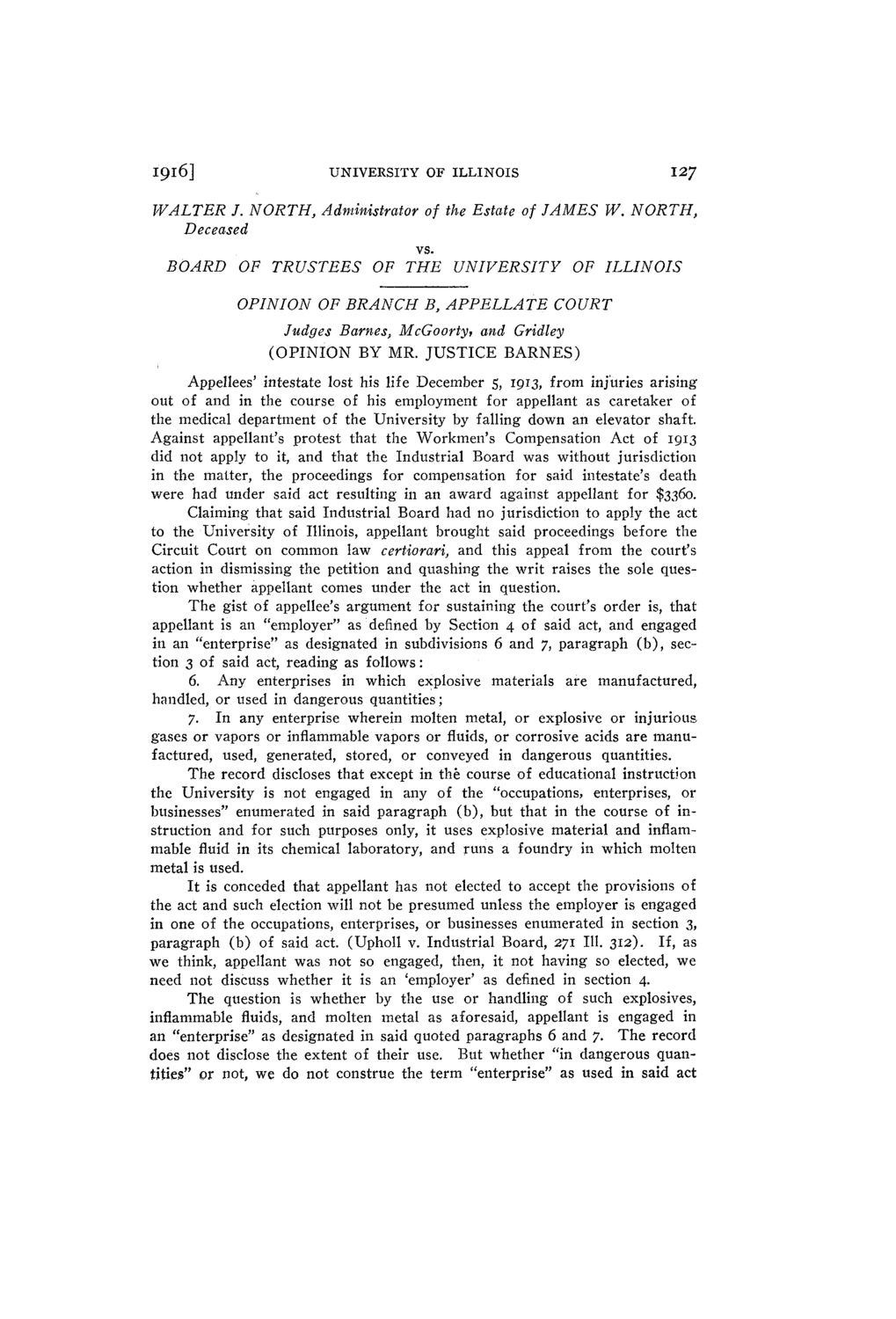| |
| |
Caption: Board of Trustees Minutes - 1918
This is a reduced-resolution page image for fast online browsing.

EXTRACTED TEXT FROM PAGE:
I9i6] UNIVERSITY OF ILLINOIS 127 WALTER J. NORTH, Administrator of the Estate of JAMES W. NORTH, Deceased vs. BOARD OF TRUSTEES OF THE UNIVERSITY OF ILLINOIS OPINION OF BRANCH B, APPELLATE COURT Judges Barnes, McGoorty, and Gridley (OPINION BY MR. JUSTICE BARNES) Appellees' intestate lost his life December 5, 1913, from injuries arising out of and in the course of his employment for appellant as caretaker of the medical department of the University by falling down an elevator shaft. Against appellant's protest that the Workmen's Compensation Act of 1913 did not apply to it, and that the Industrial Board was without jurisdiction in the matter, the proceedings for compensation for said intestate's death were had under said act resulting in an award against appellant for $3360. Claiming that said Industrial Board had no jurisdiction to apply the act to the University of Illinois, appellant brought said proceedings before the Circuit Court on common law certiorari, and this appeal from the court's action in dismissing the petition and quashing the writ raises the sole question whether appellant comes under the act in question. The gist of appellee's argument for sustaining the court's order is, that appellant is an "employer" as defined by Section 4 of said act, and engaged in an "enterprise" as designated in subdivisions 6 and 7, paragraph (b), section 3 of said act, reading as follows: 6. Any enterprises in which explosive materials are manufactured, handled, or used in dangerous quantities; 7. In any enterprise wherein molten metal, or explosive or injurious gases or vapors or inflammable vapors or fluids, or corrosive acids are manufactured, used, generated, stored, or conveyed in dangerous quantities. The record discloses that except in the course of educational instruction the University is not engaged in any of the "occupations, enterprises, or businesses" enumerated in said paragraph (b), but that in the course of instruction and for such purposes only, it uses explosive material and inflammable fluid in its chemical laboratory, and runs a foundry in which molten metal is used. It is conceded that appellant has not elected to accept the provisions of the act and such election will not be presumed unless the employer is engaged in one of the occupations, enterprises, or businesses enumerated in section 3, paragraph (b) of said act. (Upholl v. Industrial Board, 271 111. 312). If, as we think, appellant was not so engaged, then, it not having so elected, we need not discuss whether it is an 'employer' as defined in section 4. The question is whether by the use or handling of such explosives, inflammable fluids, and molten metal as aforesaid, appellant is engaged in an "enterprise" as designated in said quoted paragraphs 6 and 7. The record does not disclose the extent of their use. But whether "in dangerous quantities" or not, we do not construe the term "enterprise" as used in said act
| |